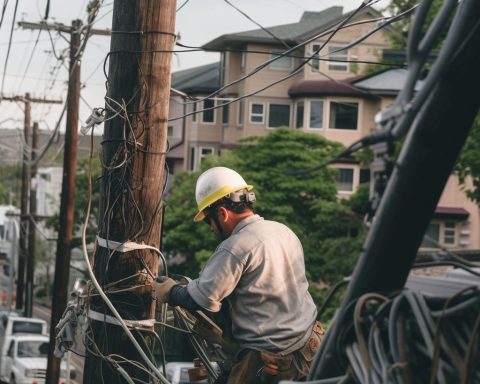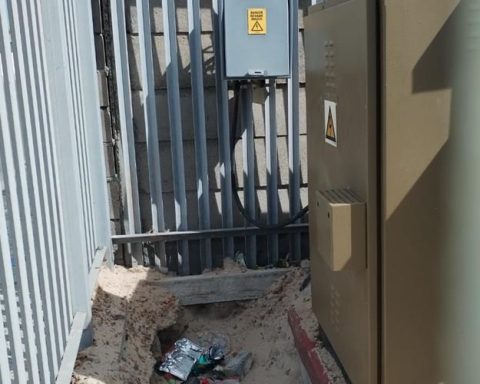Cape Town’s 24/7 call centres are essential to the city’s communication and service delivery. The City emphasizes the importance of avoiding duplicate service requests to ensure efficient and timely response. Citizens can participate in shaping the city’s development by responsibly using the available communication channels and fostering a productive relationship between the City and its residents. Cape Town offers a variety of communication channels for requesting city services, each carefully managed and designed to serve a specific purpose. The connection between citizens and the City is one of mutual respect and collaboration, with each service request contributing to Cape Town’s continually evolving narrative.
The Significance of Call Centres in Cape Town
Cape Town’s 24/7 call centres play a vital role in the city’s communication and service delivery. With various channels available to report service requests, the City emphasizes the importance of avoiding duplicate requests to ensure efficient and timely response. Citizens can participate in shaping the city’s development by responsibly using the available communication channels and fostering a productive relationship between the City and its residents.
The Significance of Call Centres in Cape Town
At the core of Cape Town, a steady buzz of phone conversations and lively exchanges outlines the tales of people and their diverse life situations. The surge in call traffic is directly linked to unexpected weather alterations, revealing the city’s dependence on these pivotal communication hubs. Amid this swell, Cape Town presents a sole appeal to its inhabitants: log your service request or share an incident only once.
This seemingly simple request has deep-seated effects on the City’s functioning. The resulting burden on the communication lines and personnel is not just a minor inconvenience; it carries potential IT-related risks that can impact the entire communication framework. Duplication of service requests, while seeming like an urgent plea from worried citizens, paradoxically prolongs the time taken for each request to be resolved.
Cape Town’s Approach to Service Requests: Efficiency and Patience
The City’s method for handling service requests is uncomplicated yet impactful: swift and timely response. It’s a daunting task that demands flexibility, tenacity, and a dedication to public service. Alderman Theresa Uys, the City’s Mayoral Committee Member for Corporate Services, assures citizens that all requests are processed, with teams prioritizing them as deemed necessary.
Alderman Uys’ statement fulfills dual roles: it is both a reassurance and a call for patience. It essentially encourages inhabitants to participate in the process, to have faith in the system, and to responsibly use the available communication channels. Channels such as WhatsApp, email, and SMS are effective alternatives for reporting incidents and asking for help. While the City offers diverse platforms to access services, repeatedly logging the same issue only blocks these channels and hinders the overall process.
The Array of Communication Channels: Variety and Challenges
In the technologically advanced Cape Town, inhabitants have a plethora of ways to request city services. From traditional phone calls to user-friendly WhatsApp services and even e-Services, the City has deployed a wide range of communication channels. Each channel is carefully managed and designed to serve a specific purpose: emergency services, roads and stormwater issues, water and sanitation, and electricity services and damage.
The intricacy and mutual dependence of these services present novel challenges, necessitating inventive solutions and effectual management. The unpredictable nature of weather conditions, coupled with the urgent need for city services, highlights the immense importance of these services and the necessity for their efficient management.
The Connection Between Citizens and the City: A Tale of Mutual Respect and Cooperation
There’s a unique charm in the seemingly commonplace task of logging service requests. With every call or message, inhabitants cultivate a bond with the City, weaving a complex network of needs and solutions. Equipped with a specific reference number, each citizen becomes an essential part of Cape Town’s continually evolving narrative, their personal tales merging into the broader story of Cape Town’s resilience and malleability.
In its essence, the City’s appeal to its residents is one of reciprocal respect and collaboration. It’s a call for understanding, recognizing that the enthusiasm driving residents to report service requests also fuels the city’s response to these requests. By circumventing duplicate service requests, citizens not only make the process more efficient but also enhance their city’s ability to serve them better.
At the heart of it, each service request symbolizes a more profound dialogue – a conversation between the City and its residents. A mutual comprehension of city administration realities and public involvement can foster a more harmonious and productive relationship, where both the City and the residents actively contribute to shaping Cape Town’s development and progression. Hence, amidst the noisy symphony of ringing phones and typing keyboards, lies a harmonious composition of civic involvement and social obligation.
Finally, Cape Town’s 24-hour call centres incarnate more than just service providers. They are an inseparable part of Cape Town’s dynamic narrative, a testament to the City’s steadfast commitment to its people and a symbol of the people’s faith in their City. After all, the tale of Cape Town is essentially a tale of its people, with each call, each request, and each response adding another thread to this ongoing narrative.
1. What is the significance of call centres in Cape Town?
Cape Town’s 24/7 call centres play a vital role in the city’s communication and service delivery. They are essential to the city’s functioning, and citizens can participate in shaping the city’s development by responsibly using the available communication channels and fostering a productive relationship between the City and its residents.
2. How does Cape Town handle service requests?
The City’s method for handling service requests is uncomplicated yet impactful: swift and timely response. All requests are processed, with teams prioritizing them as deemed necessary. The City encourages inhabitants to participate in the process, have faith in the system, and to responsibly use the available communication channels.
3. What are the challenges in managing communication channels in Cape Town?
The intricacy and mutual dependence of these services present novel challenges, necessitating inventive solutions and effectual management. The unpredictable nature of weather conditions, coupled with the urgent need for city services, highlights the immense importance of these services and the necessity for their efficient management.
4. What are the communication channels available for requesting city services in Cape Town?
Cape Town offers a variety of communication channels for requesting city services, each carefully managed and designed to serve a specific purpose. Channels include traditional phone calls, user-friendly WhatsApp services, and e-Services. Each channel is designed to serve specific purposes such as emergency services, water and sanitation, and electricity services and damage.
5. What is the connection between citizens and the city in Cape Town?
The City’s appeal to its residents is one of reciprocal respect and collaboration. It’s a call for understanding, recognizing that the enthusiasm driving residents to report service requests also fuels the city’s response to these requests. By circumventing duplicate service requests, citizens not only make the process more efficient but also enhance their city’s ability to serve them better.
6. Why is it essential to avoid duplicate service requests in Cape Town?
The City emphasizes the importance of avoiding duplicate service requests to ensure efficient and timely response. Duplication of service requests, while seeming like an urgent plea from worried citizens, paradoxically prolongs the time taken for each request to be resolved. It carries potential IT-related risks that can impact the entire communication framework.











